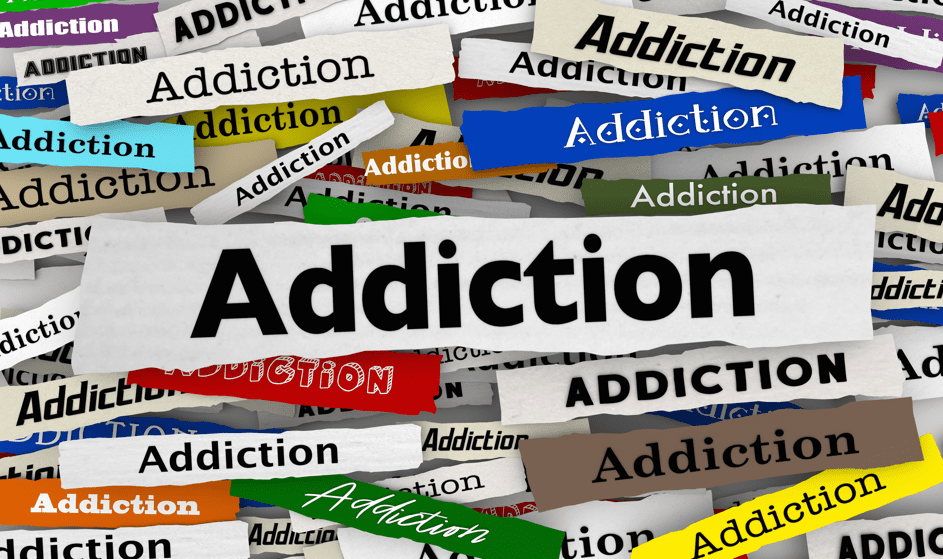
Glamorised, demonised and often exaggerated, drug addiction is portrayed in many ways in the media but rarely is it accurate or helpful. Most representations of people who abuse drugs and alcohol are overly negative or so far-fetched they create a skewed image of what drug addiction is actually like.
These inaccurate portrayals mean substance abusers face stigma, moral judgement and ostracization from society. The World Health Organisation report that illegal drug users are the most stigmatised group, with alcoholics and other drug users facing similar discrimination on a daily basis. (1) These negative representations can leave people feeling shame, guilt, anger and rejection – the triggers for more potentially harmful behaviour in the form of drug addiction.
At Delamere, we’re here to dispel the myths and create an open dialogue around addiction to help anyone who may be struggling with alcohol or drug abuse. In this article we look at some of the injustices in the media coverage of drug users and how, as parents, colleagues, friends and family members, we can use this knowledge to support our loved ones.
How addiction is portrayed in the press
Nearly two thirds of adults in the UK agree that people with a history of drug dependence are demonised in the media. Research by the UK Drug Policy Commission (UKDPC) into national, regional, tabloid and broadsheet newspapers found that references to drug users was overwhelmingly negative and more likely to be condemning rather than empathic.
The report also found that a drug user’s demographic had a bearing on their treatment by the press. Celebrities, young people and professionals were least likely to be labelled ‘addicts’ or ‘junkies’. While offenders, parents and unspecified members of the public were most likely to be given this unwelcome tag. (2)
At Delamere, we know that these stigmatising labels are unhelpful to someone suffering with substance abuse and their families. We help guests from all walks of life to overcome alcohol addiction, drug addiction and other addictions in a non-judgemental and supportive environment. Our team of holistic therapists has first-hand experience of dealing with addiction and can help you overcome the stigma of drug abuse in a caring and compassionate way.
Drug and alcohol addiction on the big screen
From Phil Mitchell’s crack cocaine addiction to Holly Barton’s heroin overdose, popular soaps like Eastenders and Emmerdale have always featured addiction in their storylines. For years, drug addiction was played out by the usual stereotypes: heartless thieves and reckless scoundrels. More recently, plots have been more finely honed to give a balanced view of addiction and show that substance abuse can affect people of all ages, genders and socioeconomic backgrounds. An increasing number of women have been the focus of recent addiction episodes, for instance, as have less talked about drug problems such as crystal meth and prescription painkiller addiction.
While many TV shows and films try to show the negatives of taking drugs, there are some that make it seem funny, entertaining, glamourous or cool. Trainspotting was lambasted for glorifying drug use in the 1990s and, since then, we’ve seen many more films do the same. From a stag party that goes hilariously wrong in The Hangover to teenagers getting up to mischief in the pursuit of alcohol in Superbad, these portrayals make alcohol and drug use seem like funny adventures with no real consequences.
As well as trivialising what going through addiction feels like, this gives the false impression that taking drugs and abusing alcohol is harmless. At Delamere, we know there are multiple reasons for drug addiction and alcohol addiction. Whilst media exposure may increase people’s awareness, there is usually an underlying reason why someone is compelled to reach for alcohol or drugs. We work with our guests to find out where their addiction started and what we can do to help them take a different path.
The language of addiction in the media
One of the most detrimental effects of how addiction is portrayed in the media is the language people use. Words like ‘addict’, ‘junkie’, ‘alcoholic’ and ‘drunk’ can be damaging to someone suffering with a substance use disorder. As well as being hurtful, using the wrong terminology can also be harmful in terms of them asking for help or seeking medical treatment. It may also make the person feel more anxious or depressed.
The National Institute on Drug Abuse has these recommendations:
- Use Person with substance disorder instead of addict or junkie
- Use Person with an alcohol use disorder instead of alcoholic or drunk
- Use Person in recovery instead of former addict or reformed addict
- Use Testing positive instead of dirty or failing a drug test
Rather than blaming or shaming, using first-person language shows that substance use disorder is an illness and that it is the person that has a problem rather than the person being the problem.
Over the years here at Delamere we have established our own way of communicating with our guests that helps them feel respected, valued and empowered. During one-to-one sessions with our therapists you can talk freely about your thoughts and experiences, without judgement, to help you step away from addiction and towards a better life.
Does social media influence drug addiction?
Social media is a huge stress for parents of this generation. As if constant selfies weren’t bad enough, celebrities such as Justin Bieber and popular influencers on TikTok and Instagram are glamorising the party lifestyle. Seeing successful people showing off their substance use in lavish surroundings tells young people it’s OK to binge drink and take drugs. Not only that, but watching their peers engage in fun times with alcohol and drugs only makes teens want to try them more.
With tobacco, alcohol and e-cigarette industries using social media in their marketing strategies, teens are exposed to substance use on social media in numerous ways that are all very hard to regulate. Several studies have tried to determine the link between social media use, alcohol addiction and drug addiction. One study showed that teenagers who regularly used social media were five times more likely to buy cigarettes, three times more likely to drink and twice as likely to use marijuana. Another found a link with problematic drinking and emotional problems. (3) But, with so many variables, more research is needed to establish a direct connection.
Unfortunately social media is, in itself, also very addictive both physically and psychologically. The feelings of pleasure and reward (in the form of likes) it gives the user has the same effect on the brain as an addictive substance. If you think your teen, or someone else you know, has an unhealthy relationship with social media or is showing signs of addiction to alcohol or drugs, we can help.
How can Delamere help with addiction?
While exposure to drugs in the media can play a role in addiction, there are many reasons why someone might turn to alcohol or substance abuse. At Delamere, we help our guests get to the root cause of their addiction and embark on a transformative journey in the tranquil surroundings of our forest retreat.
Every drug rehab programme begins with a clinical detox supported by our trained addiction specialists, who will your protect your mental and physical well-being at all times. After a safe and comfortable withdrawal, you will continue the recovery process with one-to-one counselling, group therapy sessions and a range of somatic healing experiences.
We believe in treating the person, not just the problem. So, whatever the source of your addiction, we will help you look at all aspects of your whole self – physical, psychological and emotional – to arrive at the best treatment plan. Our aim is the same as yours: to help you move out of addiction and on with your life.
References
1. According to a study by WHO in 14 countries, analyzing 18 potentially stigmatizing conditions – Source : Stigma, social inequality and alcohol and drug use (2008) – Robin Room et al. Online access, 16 June, 2018.
2. Singleton, N. (2010) Attitudes to drug dependence: Results from a survey of people.
3. CR Costello. Social Media and Substance Use: What should we be recommending to teens and their parents? Journal of Adolescent Health 60 (2017) 629-630 http://dx.doi.org/10.1016/j.jadohealth.2017.03.017.






